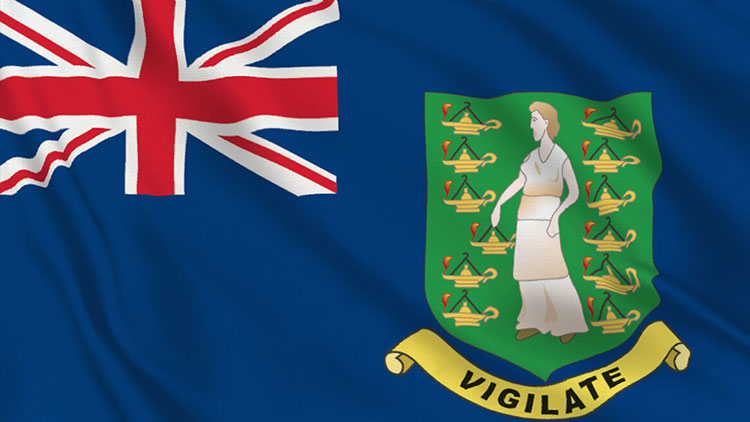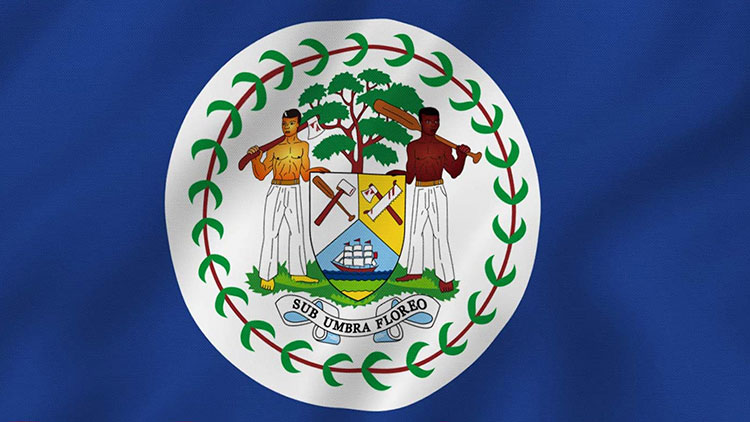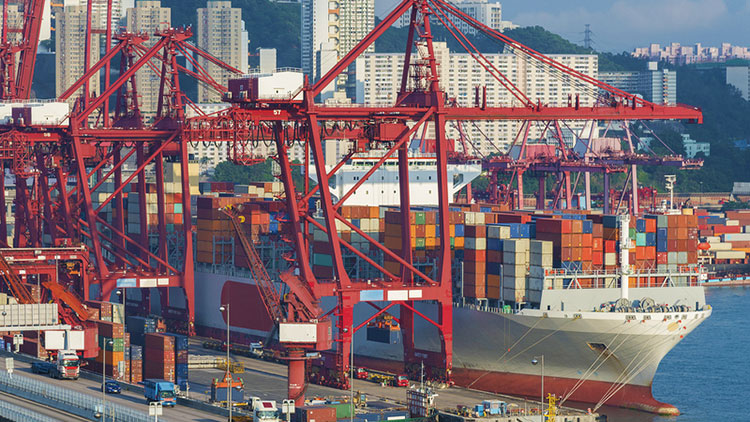
2021 is coming to an end. And this is the perfect time to look back at what has happened in the offshore market throughout the year. There have been many amendments in the offshore market such as changes in economic substance rules or tax regimes.
In this article, BBCIncorp will give you a flashback at some of the most significant changes of some major offshore markets in 2021.
1. Key updates of offshore jurisdictions in 2021
To begin with, let’s dive into some main amendments in some major offshore jurisdictions in 2021.
1.1. The British Virgin Islands
Economic Substance Amendment Act 2021

The Economic Substance (Companies and Limited Partnerships) (Amendment) Act 2021 officially came into effect on June 17, 2021, in the British Virgin Islands (BVI).
The Amendment Act expands the scope of application. Particularly, it includes limited partnerships without a separate legal personality. The Act also gave out a definition for “investment fund” and exclude this business activity from compliance under BVI ES Act.
Here are the compliance duties and reporting time of BVI Economic Substance (ES).
Compliance duties under BVI ES
Legal entities that carry on relevant activities have to meet three conditions below to satisfy the ES test in BVI:
- Direction and management test: During the financial period, the entity must guarantee its relevant activities to be directed and controlled within BVI’s territory.
- “Adequacy” test on expenditure, number of employees, premises, and equipment located in BVI: In particular, the entity must:
– Have a decent number of qualified employees to conduct relevant activities in the BVI;
– Have sufficient incurring expenses for the business operation in the BVI;
– Own a proper physical presence to carry the entity’s core income-generating activities;
– In case the entity is engaging in IP activities that require certain equipment, that equipment has to be situated within the BVI.
- CIGA test: The entity must operate Core Income-Generating Activities (CIGA) in the BVI. Core income-generating activities can vary depending on the type of business.
ES reporting time
All legal entities are required to submit an annual economic substance report within 6 months from the end of their financial year regardless of whether they engage in relevant activities or not.
For further essential information about the BVI Economic Substance Requirements, this article is for you. >>2021 Update: A Guide to BVI Economic Substance Requirements
1.2. Belize
Belize Economic Substance Act

The Economic Substance Act of Belize took effect on 11 October 2019 with the aim to prevent entities from taking advantage of Belize corporate structures to earn profits but not representing the real economic situation in Belize.
The Belize Economic Substance Act (ESA) is effective on IBCs regulated under Belize IFSC Act that conducts relevant activities. ESA is not applied on IBCs that are controlled outside Belize and are not tax residents in Belize.
Key highlights of the Belize Economic Substance Act (ESA) are:
- The scope of the economic substance requirements
- Criteria for satisfying economic substance requirements
- How to meet economic substance requirements
Wondering how to comply with Belize Economic Substance requirements? Don’t miss our article: Belize Economic Substance Requirements & Tax Guide
Income and Business Tax (Amendment) Act 2021
On June 8, 2021, the Income and Business Tax (Amendment) Act 2021 came into effect. The Act’s objective is to further stimulate Belize’s competitiveness in the international financial services sector.
The main adjustment to the Act is that a company shall not deduct tax from the dividend it pays to a company that–
- is a resident of a country not included in the EU list of non-cooperative jurisdictions for tax purposes;
- does not have a permanent establishment in Belize; and
- self-certifies that the dividends are taxable under the laws of the country of residence.
1.3. St. Vincent & Grenadines
SVG Economic Substance requirements

The International Co-operation (Economic Substance) Act 2020 of St. Vincent & Grenadines (SVG) coming into force on January 1, 2021, consists of 3 stages.
Stage 1: Determine the scope of Economic Substance requirements
The SVG Economic Substance rule is effective on ‘relevant entities’ that conduct ‘relevant activities’ in any assessment period.
Generally, ‘relevant entities’ are defined as follows:
- An entity within the meaning of Companies Act;
- A registered external company; or
- An entity within the meaning of the Business Companies (Amendment and Consolidation) Act.
Stage 2: Satisfy the ‘adequate substance’ test
In general, the ‘adequate substance’ test will require a company to:
- have adequate laborer, premises, and expenditure correspondent to the level of activity incurred in SVG;
- have direction and control in SVG;
- carry on Core Income Generating Activities (‘CIGA’) in SVG.
There are also additional criteria for each of the points above, mostly around CIGA and outsourcing.
Stage 3: Follow Economic Substance reporting obligations
Once the substance is established, an SVG relevant entity conducting relevant activities must submit a report to the Comptroller.
A typical Economic Substance report shall
- be in the approved form;
- contain information as prescribed or specified in the approved form;
- be submitted to the Comptroller at such times and intervals as prescribed.
The detail of report requirements including documentation types, statements, company records, shall be updated in the guidance from SVG’s Competent Authorities.
Non-compliance relevant entities in SVG that fail to submit a report to the Comptroller are liable to a financial penalty not exceeding $100,000 or 2 years imprisonment or both.
Check out more detailed information about SVG Economic Substance in our article: SVG Economic Substance Rule – The Biggest Issues to Watch in 2021
1.4. Seychelles
Removal of Seychelles from the EU blacklist
On October 5, 2021, the European Union officially removed Seychelles from its blacklist of non-cooperative tax havens after a meeting of the Economic and Financial Affairs Council of the EU. The removal was the result of Seychelles’s efforts to amend its territorial tax regime to cope with tax avoidance concerns of the EU.
Approval of International Business Companies (Amendment) Bill 2021
In July 2021, the National Assembly of Seychelles officially approved the amendment to the International Business Companies Act.
In general, the proposed amendments aim to improve the supervisory role of the Financial Services Authority (FSA) over the businesses registered in the jurisdiction of Seychelles. Also, the Amendments take into consideration the recommendations of the Global Forum report by the Organisation for Economic Cooperation and Development (OECD), which was published in 2020.
The International Business Companies Act addresses a variety of aspects of IBCs in Seychelles such as:
- Registered agent appointment
- Committee of directors
- Preservation of records
- Compliance requirements depend on the types of company
Implementation of Accounting Records Obligations (2021 amendments)
The Accounting Records Obligations (2021 Amendments) were officially enacted in Seychelles on August 6, 2021.
The 2021 Amendment requires every legal person and legal arrangement to keep reliable accounting records that show the legal person’s or legal arrangement’s transactions. Some examples of acceptable accounting records are:
- Bank statements
- Contracts and agreements
- Invoices
- Ledgers
- Receipts
- Title documents
- Vouchers
Also, the 2021 Amendments require all legal persons and legal arrangements to preserve accounting records for a minimum of 7 years from the date of completion of the transactions or related operations.
Furthermore, certain legal persons and legal arrangements (i.e. except IBCs that are small (non–large) holding companies) are required to annually prepare a Financial Summary within 6 months from the financial year-end.
2. Major highlights of Hong Kong in 2021
2.1. Tax regime planned changes

The main highlight of Hong Kong in 2021 is that the EU put Hong Kong in its Annex II list of non-cooperative tax jurisdictions known as the “grey list” on October 5th, 2021.
The reason why the EU added Hong Kong to its grey list is that the city applies the foreign-sourced income exemption regime in its territorial tax system that can drive tax avoidance.
In particular, Hong Kong’s territorial tax system focuses on the location where the company generates profits. Regardless of the tax residency or where the company incorporates, Hong Kong does not tax foreign-sourced incomes, which can lead to “double-non-taxation”.
After the inclusion to the EU watch list, the Hong Kong government has made responses. It promised to amend the city’s tax law and apply new regulations to prevent cross-border tax evasion following the EU standards. Specifically, by the end of 2022, Hong Kong will alter the Inland Revenue Ordinance according to Chapter 112 of the Hong Kong laws. After that, the city will impose relevant legal changes in 2023.
The proposed legislative amendments are expected to enhance the transparency of Hong Kong’s tax system. On the other hand, Hong Kong will keep its territorial source principle of taxation and low-tax regime. Therefore, Hong Kong will remain an attractive international business hub for entrepreneurs and investors in the years to come.
2.2. Business trends in 2022
The Coronavirus has continued to crumble the world economy in mid-2021 but partly contained at the end of the year. Although there are concerns about the new Omicron variant, Hong Kong’s future economy is predicted to rise exponentially. Here are the top industries in Hong Kong that are going to boom in 2022.
eCommerce

Firstly, eCommerce is on top of the list of Hong Kong’s rising industries in the long term.
The pandemic has created rich opportunities for eCommerce to grow in Hong Kong. Due to COVID-19, the number of consumers in Hong Kong increasing their use of digital platforms to splurge on goods has surged remarkably.
Particularly, KPMG reported that 75% of shoppers admit they frequently buy goods online and 97% will continue buying goods online. And the demand for eCommerce in Hong Kong will continue to increase in the future.
On top of that, according to Statista, the market size for eCommerce in Hong Kong is expected to almost double by 2025. The top segments of Hong Kong e-commerce are fashion, personal care, food & beverage, furniture, and consumer electrics. In addition, the number of online buyers is likely to hit more than 6.5 million.
Logistics

Secondly, Hong Kong’s trading and logistics are showing strong signs of recovery. The city has got plans for the sustainable future growth of trading and logistics.
The HKTDC Research reported that Hong Kong is constructing a premium logistics hub to bring an additional 1.7 million tonnes of air cargo per year. The premium logistics hub will fully operate in 2023.
Additionally, the city is planning to expand the city’s express air cargo terminal, which can increase the handling capacity by nearly 50% per year after completion in 2022. Hence, the city will implement advanced technology to boost the efficiency of logistics.
Technology

Last but not least, technology is also a key part of Hong Kong’s future economic development. The pandemic has urged 58% of businesses in Hong Kong to invest more in digital technology to facilitate remote work according to HKTDC Research.
Furthermore, the government of Hong Kong has agreed to put $4,750 million per year into the Innovation and Technology Fund for two years in a row to enhance advanced technology and 5G development.
3. Conclusion
In a nutshell, above is a wrap of major highlights at some major offshore jurisdictions in 2021.
The BVI and SVG had amendments in the Economic Substance Act. Seychelles is out of the EU list of non-cooperative tax havens. And Hong Kong after the inclusion into the EU grey list has proposed some changes in its tax system to combat cross-border tax avoidance are some marked highlights of the 2021 offshore market.
BBCIncorp would like to wish you a merry Christmas and a bright new year ahead. We will keep on updating the latest and most helpful information about the offshore market. For more information, feel free to email us via service@bbcincorp.com to consult our advisors!
Disclaimer: While BBCIncorp strives to make the information on this website as timely and accurate as possible, the information itself is for reference purposes only. You should not substitute the information provided in this article for competent legal advice. Feel free to contact BBCIncorp’s customer services for advice on your specific cases.
Get helpful tips and info from our newsletter!
Stay in the know and be empowered with our strategic how-tos, resources, and guidelines.



